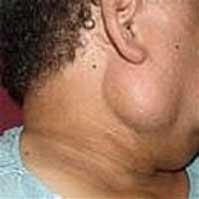Salivary Cancer Symptoms and Treatment Procedure

Salivary gland cancer is a rare but potentially serious condition that often goes unnoticed until it reaches an advanced stage. Understanding its symptoms is crucial for early detection and effective treatment.
Among common types of signs, patient will notice difficulty in swelling or lump issues. The most common sign of salivary gland cancer is the presence of a painless lump or swelling near the jaw or in the mouth. While not all lumps indicate cancer, any persistent growth should be evaluated by a medical professional.
Pain or Numbness Associated with Salivary Gland
Patients may experience pain, tenderness, or numbness in the face, neck, or mouth. It is associated with the salivary gland. These sensations may be persistent and not alleviated by typical remedies.
Difficulty Swallowing or Speaking
As the tumor grows, it may impede the normal functioning of the salivary glands, leading to difficulty in swallowing or speaking. Persistent hoarseness or changes in the voice can also be indicative of an underlying issue. The most crucial thing is to consult with the experts or surgeons who will ask for the tests and then recommend the surgery. Surgeons will also provide you with the right treatment for salivary gland, Adenoid cystic, Mucoepidermoid cancer and salivary cancer
Facial Weakness or Paralysis
In some cases, salivary gland cancer may affect facial nerves, causing weakness or paralysis on one side of the face. This can be gradual or sudden and should prompt immediate medical attention. It is one of the most common issues that may also occur due to herpes on the face. You are advised to consult with the doctor before doing anything.
Fluid Drainage
Unexpected drainage of fluid from the ear may occur as a result of a tumor affecting the parotid gland. This discharge may be blood-tinged and is often persistent.
Weight Loss and Fatigue
As with many cancers, unexplained weight loss and persistent fatigue can be associated with salivary gland cancer, signaling a systemic impact on the body. Weight loss may also occur due to varied other reasons. You are advised to consult with the doctors before taking any step.
While these symptoms do not guarantee the presence of salivary gland cancer, their persistence necessitates prompt medical evaluation. Early detection significantly improves the chances of successful treatment. Regular dental check-ups and self-awareness are crucial in catching this silent threat before it advances. If you or someone you know experiences these symptoms, seeking medical advice promptly is essential for a timely diagnosis and appropriate intervention.

Comments